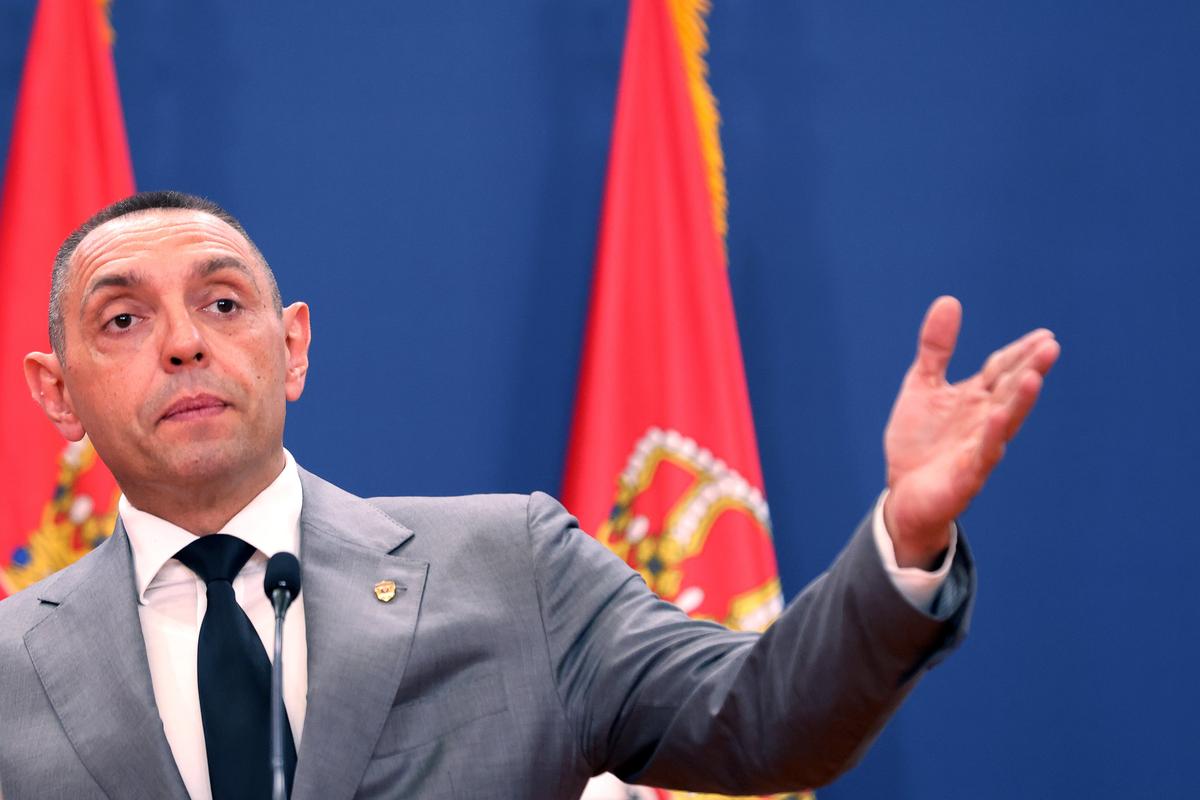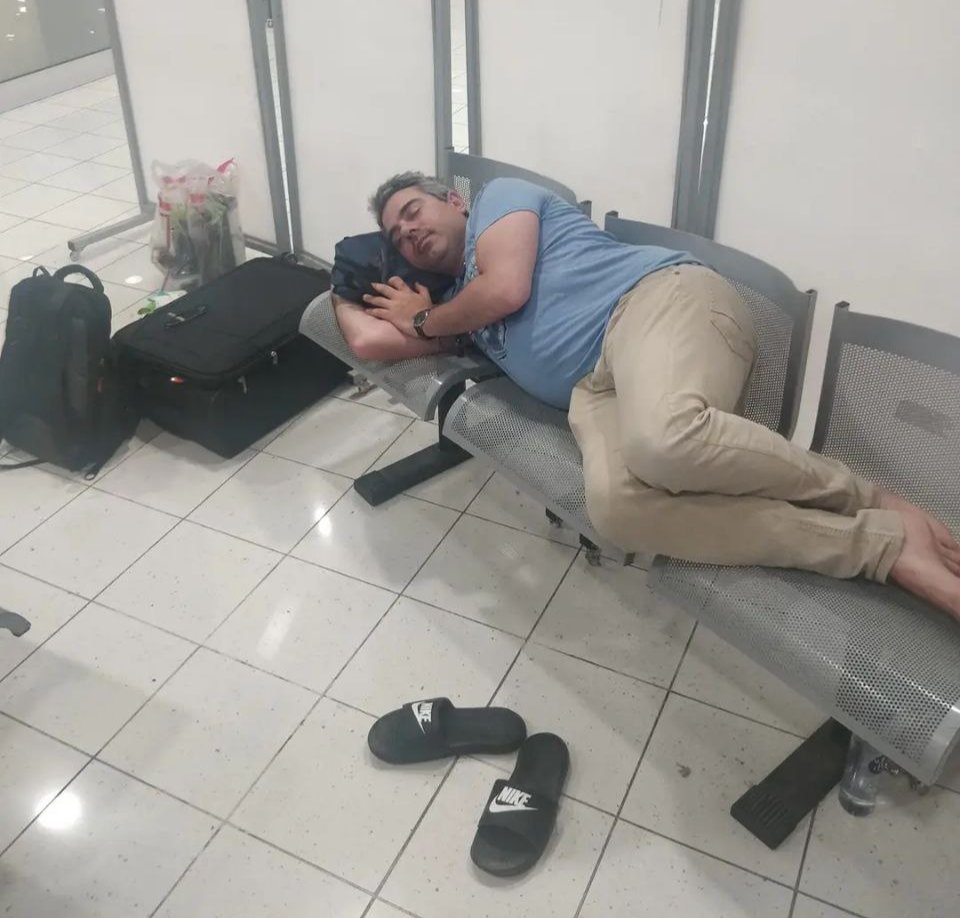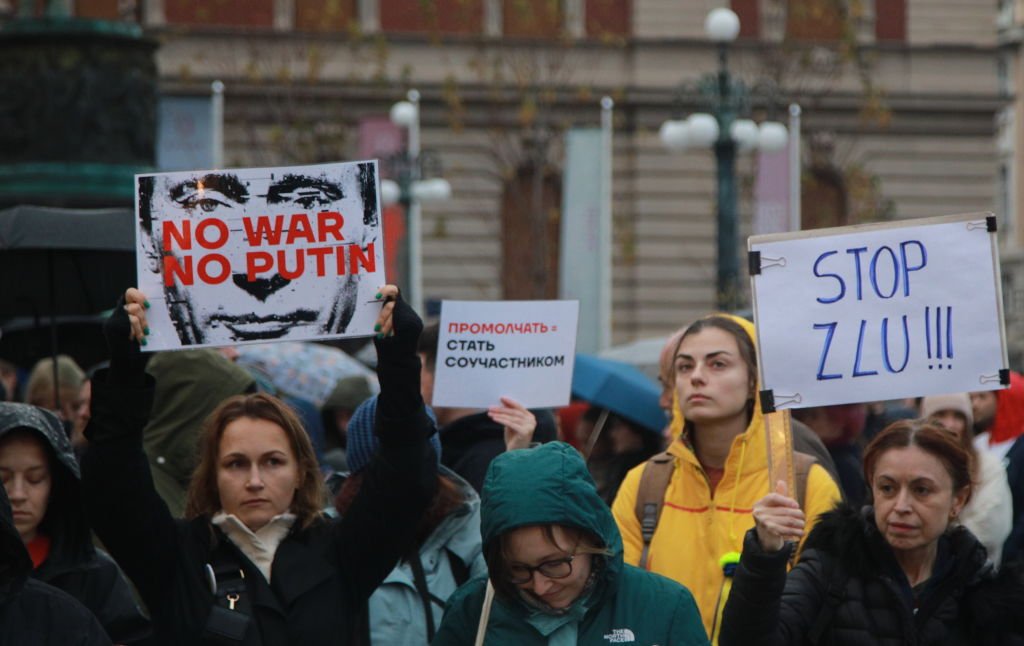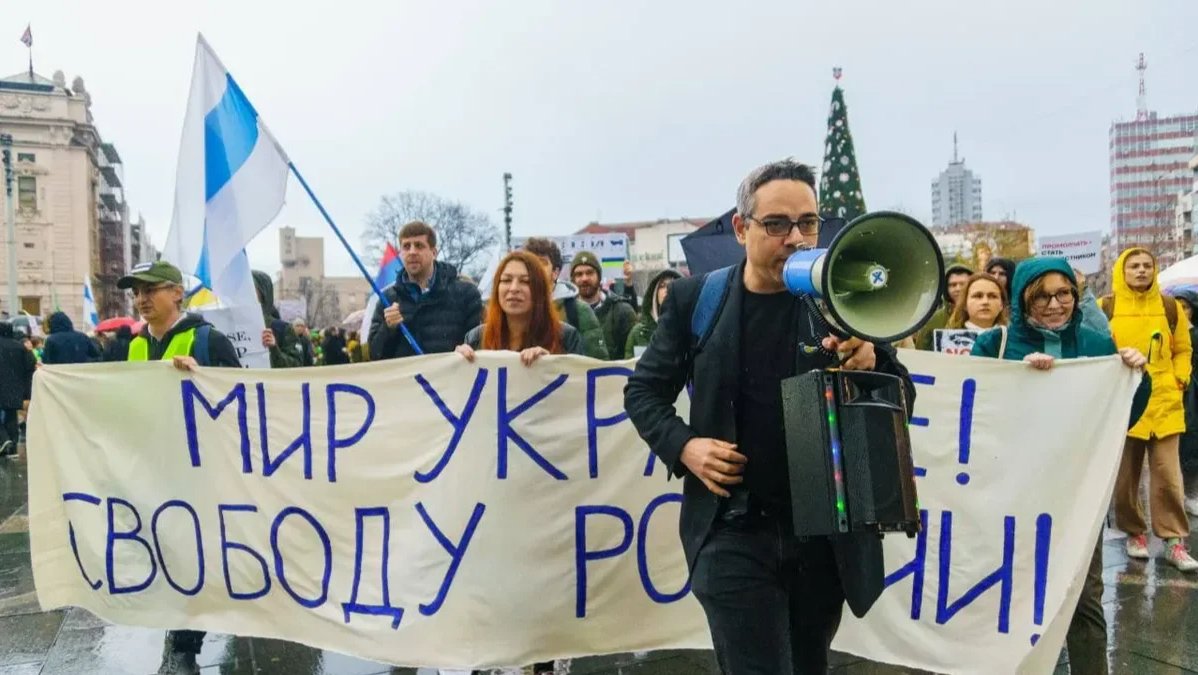Following the Russian invasion of Ukraine, Serbia has become one of the main destinations for Russians fleeing the country. Among the emigres are political activists who opposed Vladimir Putin’s regime and his decision to invade Ukraine. So far these people could feel safe: no Russians were punished for their political stance in Serbia, unlike in Georgia or Kyrgyzstan, for instance.
This changed on 13 July when Peter Nikitin, an anti-war activist who organised anti-Putin rallies in Belgrade, was not allowed to enter Serbia. Although he was eventually let into the country, the faith in Serbia as a safe haven for anti-war Russians cracked.
In his exclusive piece for Novaya-Europe, Aleksandar Đokić, a political scientist, has explained why Serbia’s authorities attempted to bar Nikitin from entering the country, why they eventually changed their mind, and how the activist could have fallen prey to major political developments in Serbia and the Western Balkans.
Sanctions to break ties with Russia
Aleksandar Vučić, Serbia’s president, found himself between a rock and a hard place a few months ago: the rallies of the domestic liberal opposition have continued in the country for eleven weeks already, and the new negotiation on the Kosovo crisis reached its peak this summer.
The current Kosovo process is a lot more than just a confrontation between Pristina and Belgrade regarding the territorial dispute: these days, it is the only path towards integrating the Western Balkans, a huge region, into the EU and NATO, a topic that became especially relevant after Russia’s invasion of Ukraine had started. The negotiations on the status of Kosovo would be a risky venture for any Serbian political leader, and Vučić is very much aware of that.
However, the West, which is actively involved in the Kosovo process, does not always act the way Vučić expects. The US imposed personal sanctions against Aleksandar Vulin, a close associate of Vučić, on 11 July, which was an unexpected move for Serbia’s leadership.
Vulin is currently in charge of Serbia’s Security Intelligence Agency, and held the position of Defence Minister and Interior Minister in the past. He is also believed to be Vučić’s right-hand man in many domains. He is not popular with the general public, but represents the president on various private matters.

Aleksandar Vulin, Director of Serbia’s Security Intelligence Agency. Photo: EPA-EFE / ANDREJ CUKIC
In its reasoning of the sanctions, the US directly links Vulin’s activities with promoting Russia’s interests in the region. “Aleksandar Vulin has been implicated in transnational organised crime, illegal narcotics operations, and misuse of public office,” the press release reads. “He has used his public positions to support Russia, facilitating Russia’s malign activities that degrade the security and stability of the Western Balkans.”
The idea behind the sanctions is to avoid disrupting the relations between the US and both Serbia and Vučić personally, but at the same time to send the Serbian president a clear sign that the Kosovo process, or, more precisely, its conclusion, would mean that Serbia will have to sever its ties with Russia.
Christopher Hill, the US ambassador to Serbia, has explained that the US is aiming to improve the relationship with the Balkan country as the relations between Belgrade and Pristina are also changing, but the obstacle is Vulin, i.e., the Russian influence.
The Terminal
The next day after the sanctions had been imposed, in the early hours of 13 July, something happened that (at first sight) did not appear to be either related to this historical process or the sanctions against Vulin: Peter Nikitin, an anti-war activist known neither to the Serbian nor Russian general public, was not allowed to enter Serbia where he has been living since 2016 on a residence permit. Nikitin was handed a confusing writ that did not specify what agency or state body issued it, but banned him from entering Serbia without an explanation.
Nikitin is a citizen of the Netherlands, a country he moved from Russia with his parents back in 1993. This is why the Serbian authorities were going to deport him to Frankfurt, the airport he arrived from, and not to Russia. During the next two days, the Nikola Tesla Airport in Belgrade acted as some sort of a location for The Terminal: just like Tom Hanks’ protagonist, Nikitin was forced to live in the airport’s transit area.

Peter Nikitin at the Nikola Tesla Airport in Belgrade. Photo: Telegram
However, on 14 July, after only two days, Nikitin was allowed into Serbia as if nothing happened. Although there cannot be any papers or other direct proof in this situation, it is most likely that it was Vulin’s agency that denied entry to Nikitin.
After Serbia’s decision was made public, the country’s NGOs and the liberal opposition spoke out in support of Nikitin. The Belgrade Centre for Human Rights promised it would address international institutions. Srđan Milivojević, a Serbian MP from the opposition Democratic Party, even arrived at the airport to pay a visit to Nikitin, but eventually told the press he was not allowed inside the transit area.
Milivojević issued a statement, blaming the situation on Vulin’s agency to which he referred to as “the core instrument of Aleksandar Vučić’s anti-European policy”.
Nikitin and his lawyer say the entry ban was introduced due to Russia’s involvement. This does not sound entirely convincing as Nikitin failed to unite enough activists and Russian emigres around himself after a year and a half of the Ukraine war to attract some real attention from the Kremlin. Moreover, Nikitin is a Dutch citizen, and there are no charges of any kind against him in Russia. In his own statements, he did not accuse Vučić, but emphasised that he was being persecuted by Vulin and Putin together. This, along with the support of Serbia’s liberals, was the right strategy: the entry ban was waived and Nikitin was allowed to enter Serbia.
No threat
In reality, the most likely explanation is that Serbia’s authorities wished to take it out on someone after the US had imposed their sanctions against Vulin in order to show off their power to the nationalist and anti-Western voters.
Nikitin appeared to be the perfect prey: an average Serbian citizen has no idea who the man is, but at the same time, he is a national of a Western country, has been involved in political activism for years, is a critic of Putin, and has attended anti-government rallies in Belgrade. Obviously, Serbia’s authorities did not expect the entry ban for Nikitin to stir so much noise in the media, and after this happened, they made a U-turn, expecting everyone to forget about the incident after a bit of time.
Nikitin’s case actually proves that Russian nationals and political activists who reside in Serbia are hardly in any serious danger of political persecution.
The Serbian authorities are playing a double game: they do not hinder people from arranging anti-war rallies for the sake of good relations with the West, and they also do not interfere with the pro-Putin rallies, arranged by Serbian nationalists, in order to attract their voters.
Since the Serbian leadership can neither cut ties with the West nor its voters, it is going to go ahead with this strategy in the future as well.

An anti-war rally in Belgrade, December 2022. Photo: Milos Miskov / Anadolu Agency / Getty Images
As for Vulin’s future, Miloš Vučević, the Defence Minister and the man Vučić recently proclaimed his successor as leader of the Serbian Progressive party, announced that Vulin’s further employment as Director of the Security Intelligence Agency would be up to the National Security Council. It would be easier for Vučić to simply dismiss Vulin without pressing criminal charges against him. This way he could keep his close ally next to himself and send a signal to the US.
The only problem for Vučić here is that Serbia’s liberal opposition also wants Vulin fired: this is one of the demands of the anti-government rallies. If Vučić is to yield to these demands, his domestic rivals will see that he is losing control over the country. Vučić will be seeking to avoid both disrupting his relations with the US and demonstrating his weakness to the opposition. It is most likely that in order to save face, he will cede ground to the States someplace else, but will keep Vulin in office.
Join us in rebuilding Novaya Gazeta Europe
The Russian government has banned independent media. We were forced to leave our country in order to keep doing our job, telling our readers about what is going on Russia, Ukraine and Europe.
We will continue fighting against warfare and dictatorship. We believe that freedom of speech is the most efficient antidote against tyranny. Support us financially to help us fight for peace and freedom.
By clicking the Support button, you agree to the processing of your personal data.
To cancel a regular donation, please write to [email protected]

